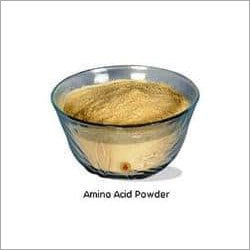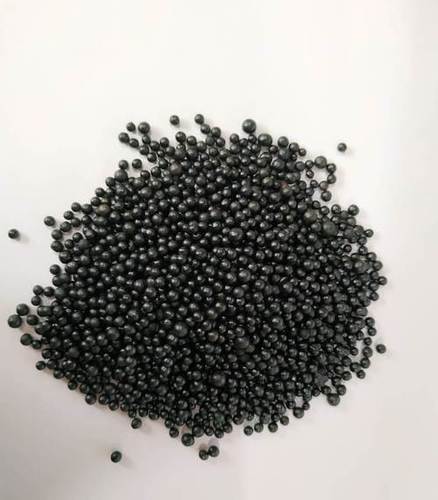Product Description
Our enterprise has gained immense recognition by manufacturing, exporting and supplying excellent quality Amino Acid . This acid is processed under the stern supervision of our adept professionals using superior grade chemical substances in adherence with the set industry standards. Offered acid is used for a variety of applications in industry, also it is mainly used as a additives to animal feed. Further, Amino Acid can be availed from us in varied packaging options and at nominal rates.
Amino Acid Features:
1. Accurate composition
2. Safe to use
3. Effectiveness
4. Long shelf life
Amino Acid Specifications:
1. Brand: Redox
2. Form: Powder
3. Usage: Plant growth promoter
4. Purity: 80%
5. Type: Organic
6. Color: Yellow
Amino Acid Applications:
1. Nutritional Supplements: Amino acids are commonly used in nutritional supplements to support muscle growth, repair, and overall health. They are particularly popular among athletes and bodybuilders.
2. Pharmaceuticals: Amino acids are used in pharmaceuticals for various purposes including as building blocks for peptide and protein drugs, as well as in formulations for parenteral nutrition.
3. Food Industry: Amino acids are used as flavor enhancers, nutritional supplements, and as ingredients in food products. They are often added to processed foods to improve taste and nutritional value.
4. Agriculture: Amino acids are used as additives in animal feed to improve growth, health, and feed efficiency. They are also used as foliar fertilizers in crop production to enhance nutrient uptake and plant growth.
5. Cosmetics and Personal Care Products: Amino acids are used in cosmetics and personal care products for their moisturizing, conditioning, and anti-aging properties. They can be found in shampoos, conditioners, skin creams, and other beauty products.
6. Biotechnology: Amino acids are essential components in biotechnology processes such as recombinant protein production, where they serve as building blocks for protein synthesis in genetically engineered organisms.
7. Medicine: Amino acids play important roles in medicine, including as precursors for neurotransmitters and hormones, as well as in the treatment of certain medical conditions such as metabolic disorders.
8. Research: Amino acids are widely used in research laboratories for various applications including protein purification, cell culture, and as standards for analytical techniques such as chromatography and mass spectrometry.
9. Industrial Applications: Amino acids are used in various industrial processes such as in the production of biodegradable plastics, detergents, and chelating agents.
10. Environmental Remediation: Amino acids are used in environmental remediation processes to promote microbial degradation of pollutants and to enhance the bioremediation of contaminated sites.
Amino Acid FAQ:
Q. What are amino acids?
Ans: Amino acids are organic compounds that serve as the building blocks of proteins. They contain an amine group (-NH2), a carboxyl group (-COOH), and a side chain (R group), which differs for each amino acid.
Q. How many amino acids are there?
Ans: There are 20 standard amino acids that are commonly found in proteins. These are known as proteinogenic amino acids. In addition to these, there are several non-standard or non-proteinogenic amino acids that have specialized roles.
Q. What is the role of amino acids in the body?
Ans: Amino acids play numerous vital roles in the body including protein synthesis, enzyme function, neurotransmitter synthesis, hormone regulation, immune system support, and energy production.
Q. Are all amino acids essential?
Ans: No, not all amino acids are essential. Essential amino acids are those that cannot be synthesized by the body and must be obtained from the diet. There are nine essential amino acids. The remaining eleven can be synthesized by the body and are therefore non-essential.
Q. What foods are high in amino acids?
Ans: Foods high in protein are typically rich sources of amino acids. These include meat, poultry, fish, eggs, dairy products, soy products, legumes, nuts, and seeds.
Q. What are branched-chain amino acids (BCAAs)?
Ans: Branched-chain amino acids are a subgroup of amino acids that have aliphatic side chains with a branch. The three BCAAs are leucine, isoleucine, and valine. They are often used as supplements by athletes and bodybuilders for muscle growth and recovery.
Q. Can amino acid supplements be beneficial?
Ans: Amino acid supplements can be beneficial in certain situations such as aiding in muscle recovery after exercise, supporting muscle growth, or addressing specific health conditions. However, it's important to use them under the guidance of a healthcare professional, especially if you have any medical conditions or are taking medications.
Q. Are there any risks associated with amino acid supplements?
Ans: While amino acid supplements are generally considered safe when taken as directed, excessive intake of certain amino acids may cause adverse effects. For example, excessive intake of branched-chain amino acids (BCAAs) may negatively impact liver function. Additionally, interactions with medications or underlying health conditions may occur, so it's important to use caution and consult with a healthcare provider before taking supplements.
Q. Do amino acids have any role in mental health?
Ans: Yes, certain amino acids play important roles in mental health. For example, neurotransmitters such as serotonin, dopamine, and gamma-aminobutyric acid (GABA) are synthesized from specific amino acids. Imbalances in neurotransmitters have been linked to various mental health conditions such as depression, anxiety, and schizophrenia.
Q. Can amino acids be used in skincare products?
Ans: Yes, amino acids are often included in skincare products for their moisturizing, antioxidant, and anti-aging properties. They can help maintain the skin's hydration, improve elasticity, and protect against environmental damage.

 English
English Spanish
Spanish French
French German
German Italian
Italian Chinese (Simplified)
Chinese (Simplified) Japanese
Japanese Korean
Korean Arabic
Arabic Portuguese
Portuguese






